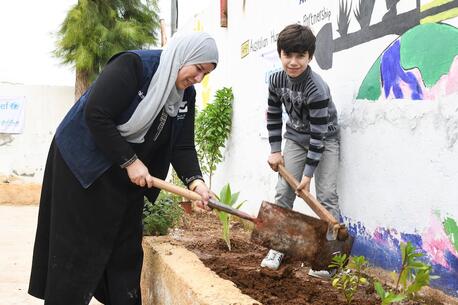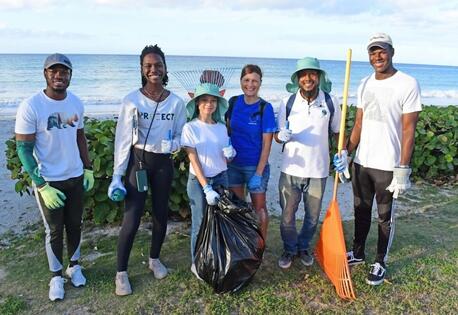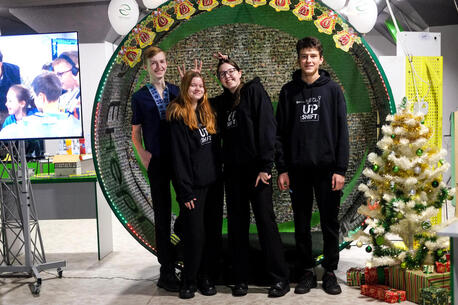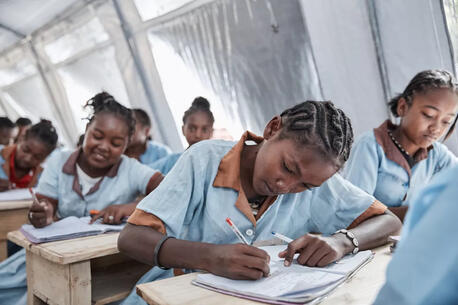
UNICEF in Madagascar
Children in Madagascar continue to face the devastating effects of overlapping crises including widespread malnutrition, multiple epidemics and recurring natural disasters intensified by climate change. Learn what UNICEF is doing to help, and how to contribute.
Climate change driving humanitarian needs in Madagascar
Poverty and climate-driven weather disasters have left many children and families in Madagascar, an island country off Africa's southeastern coast, in need of humanitarian assistance.
The nation has one of the highest percentages of people living in extreme poverty. In recent years, about one-third of the population in the southern and southeastern regions has been severely impacted by both devastating cyclones and periods of intense drought — climate shocks that have contributed to rising food insecurity.
In early 2023, communities were still in recovery when an even bigger disaster struck — Tropical Cyclone Freddy, the longest-lasting tropical cyclone ever recorded worldwide and the third-deadliest ever recorded in the Southern Hemisphere.
Water scarcity is a chronic problem in Madagascar. So is child malnutrition, with many children suffering from wasting disease, an extreme form that can be fatal if not treated promptly. Polio and malaria epidemics have further strained Madagascar's already struggling health care system.
Many children in the country have faced disruptions to their education and childhoods, endangering their rights, health and general well-being. School dropout rates have increased, along with the risks of violence and exploitation, including child marriage and child labor.
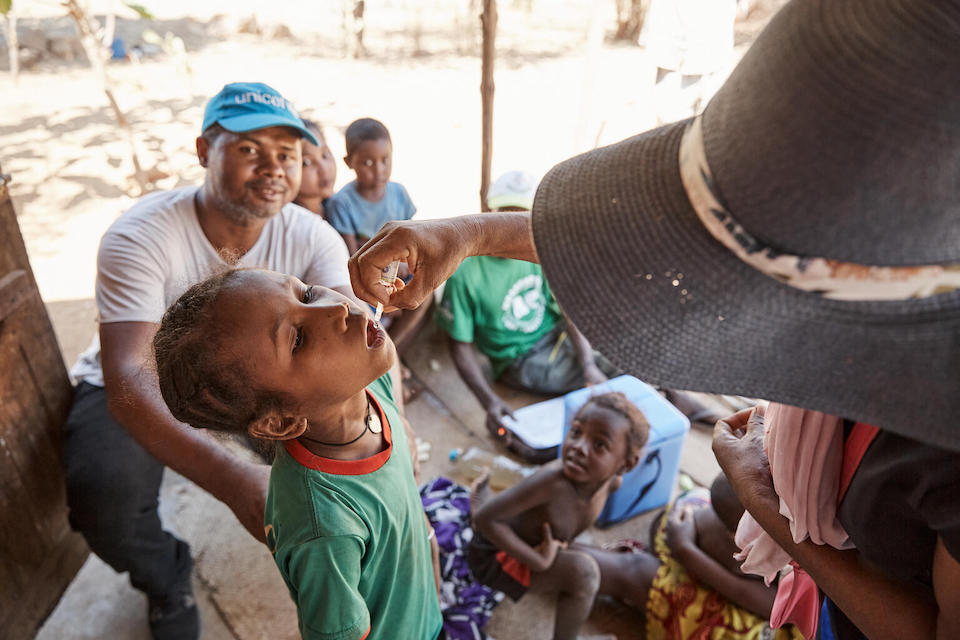
UNICEF’s commitment to helping children in Madagascar
With a presence in Madagascar since 1984, UNICEF has worked continuously in the country to provide essential aid and support to the most vulnerable children and families. Program and partnership efforts are centered around providing an ambitious, child-focused and rights-based humanitarian response.
Examples of ongoing UNICEF efforts in Madagascar include:
- Health: UNICEF supports the delivery of free primary health care — including essential child immunizations — through outreach and a mobile strategy designed to increase ease of access for children and families in the hardest-to-reach locations.
- Nutrition: Through its partnership with UNICEF, Madagascar became one of the first countries to implement World Health Organization (WHO) recommendations for acute malnutrition prevention and treatment, an important step toward creating better nutrition and care for malnourished children. UNICEF is also working to expand coverage to meet the nutritional needs of women and adolescent girls.
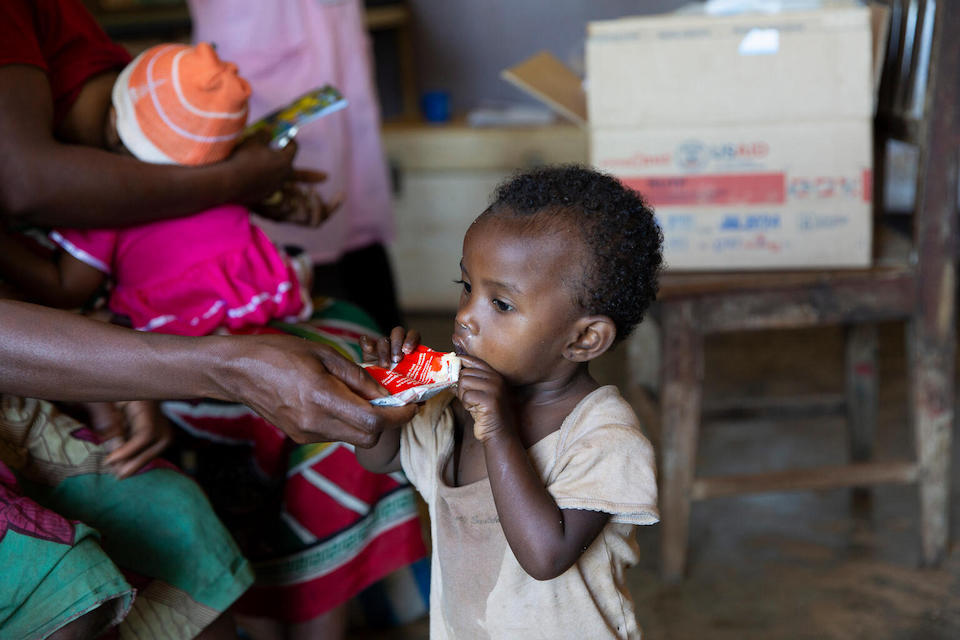
- Water, Sanitation and Hygiene (WASH): UNICEF’s efforts to create and maintain WASH infrastructure in Madagascar, along with improving access to safe water, helped reduce the costs of WASH interventions overall. However, 40 percent of the country's water and sanitation systems have been either washed out or contaminated by recurring cyclones, so there is more work to be done to rebuild those systems and make them more resilient.
- Education: Drought and cyclones have severely impacted the accessibility of schools for children living in the affected areas. Long pauses in educational instruction have followed many climate catastrophes due to damage to classrooms and the need to use school buildings for emergency shelter. UNICEF helps by setting up temporary classrooms, providing learning materials and setting up schools to be able to rebuild in a better and more sustainable way.
- Child Protection: Forced displacement due to climate disasters can place children at increased risk of gender-based violence, sexual exploitation and abuse. UNICEF works to protect children through efforts centered on reinforcing protection monitoring systems to ensure all children in Madagascar are safe and protected.
- Social Policy: Working within the government's social protection system, UNICEF provides cash assistance to families in need, while advocating for more budget transparency.
Protecting the rights of children with disabilities in Madagascar through inclusive education
UNICEF Disability and Inclusion Policy and Strategy centers disability inclusion as a priority in Madagascar, where more than 1 in 10 children have a disability. This is especially important in schools and education.
UNICEF works with partners to create and improve programs designed to ensure that children with disabilities can participate fully in learning and other classroom activities — a key part of ensuring their equitable access to opportunity in the future.
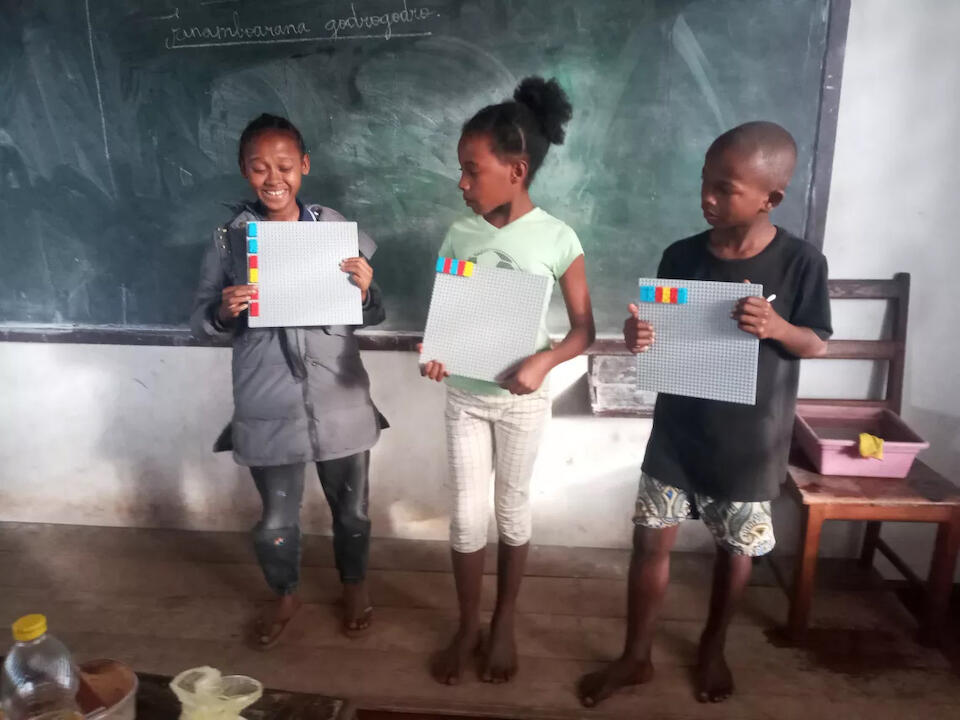
Help UNICEF keep delivering humanitarians assistance to children and families who need it the most, in Madagascar and around the world. Donate today.

